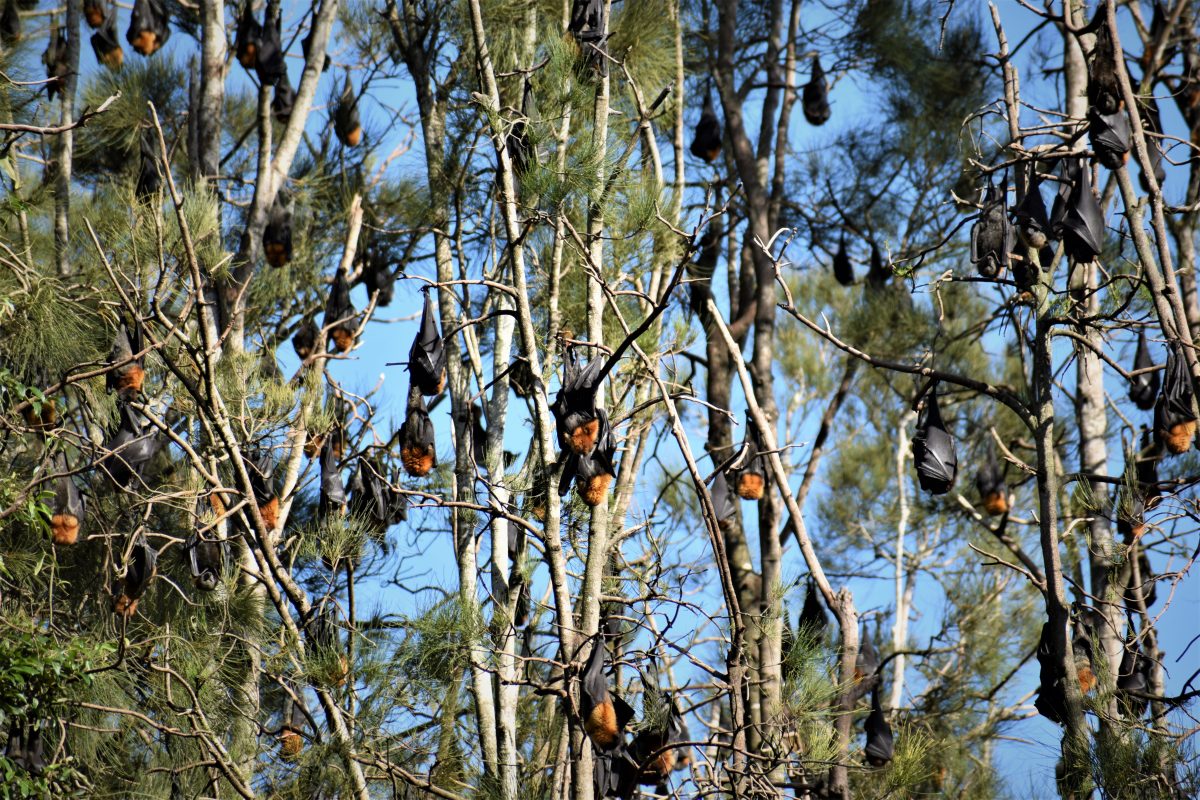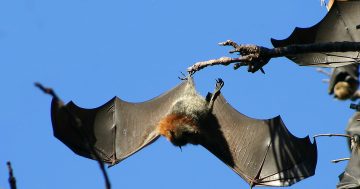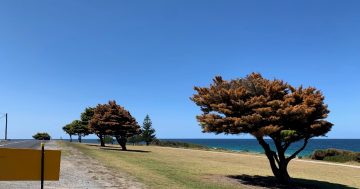
Eurobodalla Council is closely monitoring numbers of grey-headed flying foxes in the shire and is offering to help lessen the impacts felt by residents who live near flying-fox camps in Batemans Bay and Moruya. Photo: Eurobodalla Council.
We all love to see eucalypt trees flowering, but they have been accompanied by an undesired side effect this autumn: increased numbers of flying foxes.
Their numbers usually decreased as the weather cooled off, Eurobodalla Shire Council’s manager of environmental service Deb Lenson said.
“Flying-fox numbers typically peak here between December and May, with six of Eurobodalla’s eight known camps occupied this season,” Ms Lenson said.
“Currently there are four occupied camps, the newest of these located in the Moruya township area, which is not often used and is extending into some new areas.”
The council is also offering support and information to residents living near the two main camps, at Batemans Bay and Moruya.
“We’ve done a letterbox drop for nearby Moruya residents – who may be less familiar with living alongside a camp – with information about services available to them,” Ms Lenson said.
“We try to help residents and businesses better understand flying-fox movements to minimise impacts such as noise, odour and faecal drop.”
Eurobodalla Council is monitoring the estimated 12,000 grey-headed flying foxes from across the shire.
This species is nationally listed as threatened, and is facing declining populations and significant loss of habitat.
It is illegal to disturb or kill flying foxes without authorisation.
Ms Lenson said the public health risk from flying foxes was negligible.
“Australian bat Lyssavirus and Hendra virus cause serious health issues but are extremely rare as long as you don’t handle or directly touch the bats,” she said.
“We’ll continue to monitor the shire’s flying-fox population closely in the coming weeks and take action in accordance with council’s Flying-fox Management Plan, developed with community input after the influx of more than 300,000 flying foxes at Batemans Bay in 2016.”
Eurobodalla residents or visitors who see flying foxes in new areas can call the council’s natural resource management officer (flying foxes) on 4474 7329 or make a report online.
If a dead flying fox is found on power lines, report it to Essential Energy by phoning 13 20 80.
Further information on flying foxes in Eurobodalla, including current and historical data on numbers and council services available to impacted residents, is available online at www.esc.nsw.gov.au/flyingfoxes.














